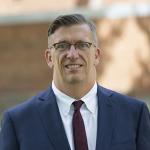Whither our schools?
I’ve been personally involved in education issues for the past ten years or so, ever since I retired back to my hometown in the north woods. I spent three years as a Peace Corps volunteer in Uzbekistan, where I was introduced to teaching. I taught global economics at the high school level in the ancient city of Bukhara, and I fell in love with teaching and with kids.
So, when I returned to Park Falls, I asked to get involved in the public schools. I started out tutoring some students with special needs, and then obtained a substitute teacher’s license so I could spend more time in the classrooms – I loved it.
Several faculty members suggested that I run for the school board, which I did, and served for eight years. During that time, I was appointed to the Policies & Resolutions Committee of the Wisconsin Association of School Boards. I also currently serve on the board of the Wisconsin Alliance for Excellent Schools, which is calling for “A Penny for Kids”, a one cent increase in the sales tax to be dedicated to education.
So much for my credentials…
Wisconsin has been justly famous for years for having excellent schools. Our state and Minnesota used to trade back and forth the “best schools in the nation” sobriquet. But lately, we’re falling seriously behind. In fact, the United States is falling seriously behind. Our colleges and universities are still recognized as probably the best in the world, but our primary and secondary schools are slipping. Too many freshman college courses now are essentially “make-up” classes designed to bring high school graduates up to speed for college level work.
Education in this country is suddenly getting a lot of attention, thanks in no small part to the documentary film, “Waiting for Superman.” Michelle Rhee, the Chancellor of the Washington D.C. schools, is making waves with her radical makeover plans, and Arne Duncan is certainly the most outspoken and activist Secretary of Education in memory. NBC has featured a week of concentrated news about education, and the American public is finally becoming aware of the major problems our schools are facing.
So – this is an election year, and it behooves us all to demand of our candidates, especially those running for governor and for the state legislature, that they research school issues and propose meaningful reforms.
Gubernatorial candidate Scott Walker has issued position papers on his ideas for our education system, although, curiously, he doesn’t specifically deal with the funding issue. He is most concerned with maintaining local control of the schools and extending the Milwaukee voucher program across the state. He is most concerned that parents have a voice in school issues.
There is much to recommend local control, and, as a school board member, I was convinced that this was critical. However, education has gotten a lot more complex in recent years, and, especially in our large cities, it may well be beyond the ability and understanding of the typical local school board.
Big city school systems are extremely complicated. My service on the Park Falls School Board was complicated enough – I can only imagine what it’s like in Milwaukee or Chicago or New York! It’s a full-time job, currently being done by elected, part-time board members. It seems to make sense that the administration of the schools, at least in our large cities, should be under the mayor and city council, with the school board and administration providing guidance.
Tom Barrett has made important steps in education, but was stymied in the proposed plan to make the city administration directly responsible for the schools, as they are in Chicago, New York and many other large American cities.
Barrett has also recognized the need for funding reform: “The current school funding formula shortchanges too many Wisconsin school districts and puts too many schoolchildren at a disadvantage. As governor, I will fight to fix these funding flaws so that every child has access to an excellent education, no matter where they live.”
It’s of critical importance that we reform our education system, that funding issues are resolved in such a way as to guarantee that all students, no matter the wealth of the district, get a premium education, that teachers are monitored and encouraged to improve or be removed, that charters and other alternate methods are explored. We’re behind, and we can’t afford to stay there. Ask the candidates for their education plans and programs, and press them for answers!

























